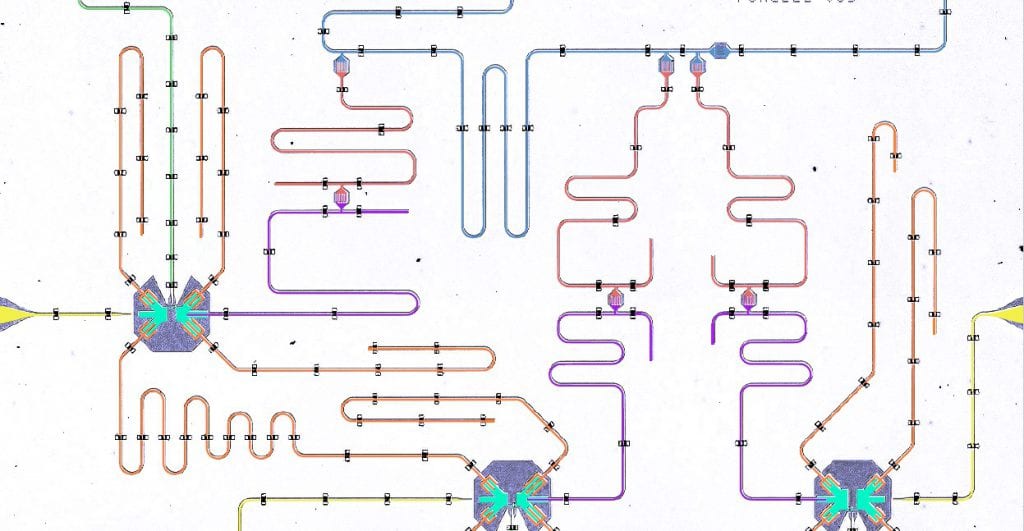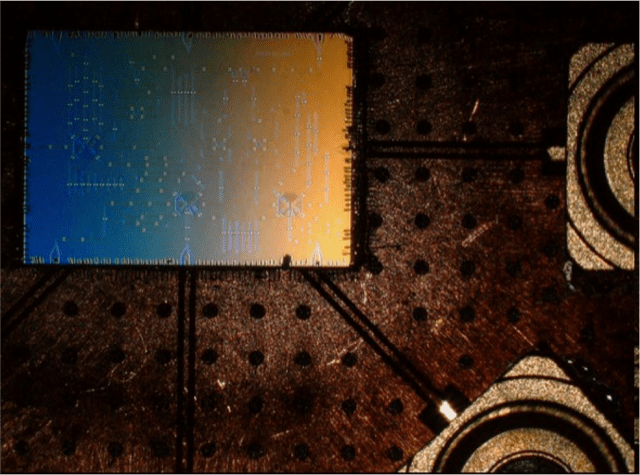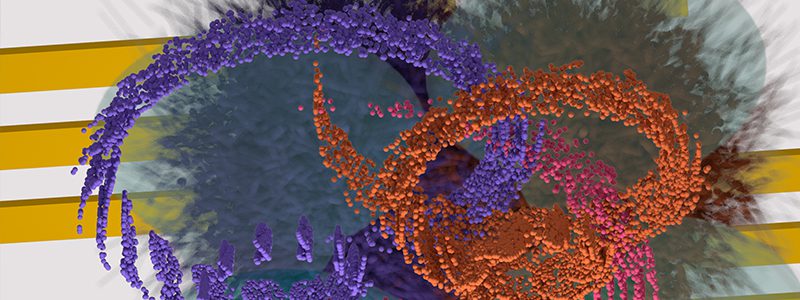20.03.2020Uncategorized
QuTech makes progress towards protecting quantum information from errors

Protecting quantum information from errors is essential for the eventual realization of a large-scale quantum computer. A team of scientists from QuTech and Leiden University has now made significant progress in tackling a specific type of quantum error: leakage. They report their findings in Science Advances on Friday, March 20th.
Quantum error correction
The promise of quantum computation stems from the possibility of quantum bits, or qubits, to be in quantum superposition and entangled with each other. However, quantum states are fragile, being susceptible to errors arising from quantum decoherence and faulty gate operations and measurements. A future fault-tolerant quantum computer will make use of quantum error correction (QEC) to identify and correct errors occurring during computation. QEC achieves this by performing so-called parity measurements to signal errors without destroying the information encoded in entangled states of many qubits.
Leakage
A team of scientists and engineers from QuTech and Leiden University has demonstrated the use of repeated quantum parity measurements to produce and preserve the entanglement. While this has been done before, they have for the first time shown how the quantum parity measurement data can be efficiently used to identify a specific form of error: leakage.
‘An ideal qubit is strictly a quantum system with two energy levels. However, many qubit implementations are many-level quantum systems. This is true for the transmon, the superconducting qubit we use’, says lead researcher Leonardo DiCarlo of QuTech. ‘We go to great lengths to ensure that the quantum information we encode in the transmon is confined to its lowest two energy levels, making it an effective qubit. However, realizing two-qubit operations in our system requires using the third energy level intermittently. Thus, there is a small but finite chance of leaking into this third level every time a two-qubit operation is performed. As such, leakage is a threat we must contend with.’

Optical image of the three-qubit superconducing quantum chip used in the experiment.
Photo credit: R. Vollmer & A. Bruno.
Damage
Leakage is an important type of error that affects the leading platforms for quantum computing, including superconducting quantum circuits and trapped ions. Although typically less frequent than qubit errors, if ignored, leakage can produce dominant damage to encoded logical information. As first author Niels Bultink explains: ‘The textbook version of quantum error correction does not address leakage. Our method solves this omission, demonstrating the ability to detect and mitigate leakage by restoring the quantum correlations characteristic of highly-entangled qubits.’
Step
The team has performed the first experimental investigation of leakage detection during repetitive parity checking, successfully protecting an entangled state of two qubits from both qubit errors and leakage in a three-qubit circuit QED processor. Future work will extend this protection to larger circuits with more qubits. In fact, the team and new collaborators have already shown (in simulation) the extension of this method to Surface-17, the 17-qubit circuit targeted to realize am error-corrected logical qubit. The low technical overhead and scalability of the approach is attractive for performing leakage detection and correction in real time, using the same parity outcomes as traditionally used to correct qubits errors only. We believe this is a significant step on the path to building a fault-tolerant quantum computer.
***
Publication
C. Bultink, T. E. O’Brien, R. Vollmer, N. Muthusubramanian, M. W. Beekman, M. A. Rol, X. Fu, B. Tarasinski, V. Ostroukh, B. Varbanov, A. Bruno, and L. DiCarlo,
Protecting quantum entanglement from leakage and qubit errors via repetitive parity measurements, Science Advances (2020).
